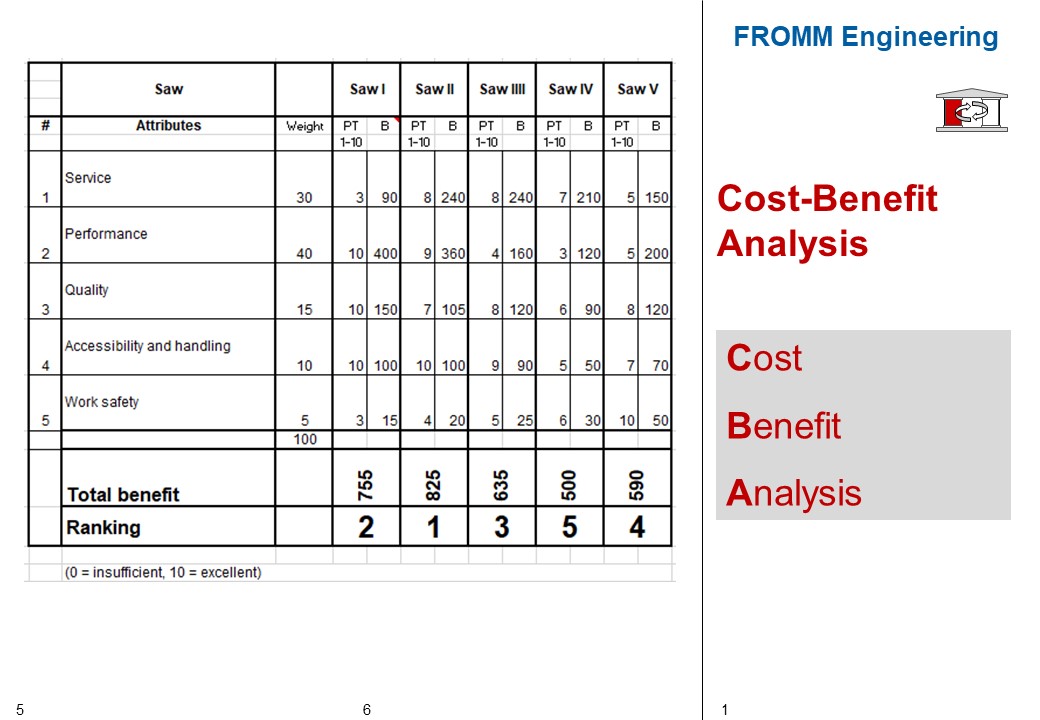Cost-Benefit Analysis

The Cost-Benefit Analysis (CBA) is one of the qualitative, non-monetary analysis methods of decision theory.
The Cost-Benefit Analysis is a methodology that should rationally support decision-making in complex problems. The CBA is a relatively old method that has its origins in the economic "utility analysis". In German-speaking countries it became known through Zangemeister (1976).
While the cost-benefit analysis only looks at various criteria from the point of view of efficiency, the value-in-use analysis evaluates effectiveness and outcome. The utility analysis takes place u. a. Application in controlling, in project management and in investment decisions, just wherever an assessment based on several quantitative and qualitative criteria, goals or conditions must be made.
The CBA is the “analysis of a set of complex alternative actions with the purpose of ordering the elements of this set according to the preferences of the decision-maker regarding a multidimensional target system. The order is mapped by specifying the utility values (total values) of the alternatives.